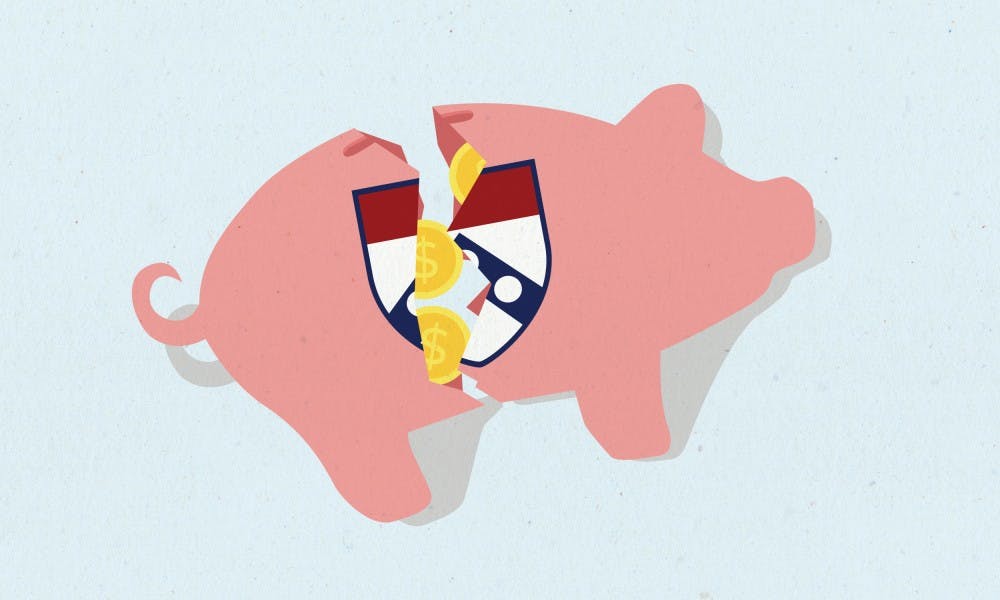Penn has been a part of the city of Philadelphia for several centuries. The University has played a fundamental role in the growth and evolution of the city, both because of the longevity of its existence and the outsize role that Penn’s money and prestige allows it to play in the community. But Penn’s actions have hurt the rest of Philadelphia, particularly through rampant gentrification.
To this day, Penn fails to engage with the Philadelphia community in a constructive or collective manner, and instead uses its status as a nonprofit to avoid paying desperately needed property taxes. It’s time for Penn to step up and finally pay Payments in Lieu of Taxes.
Paying PILOTs is a fairly common practice among elite institutions. In fact, Penn and Columbia University stand alone in the Ivy League as the only schools that do not contribute to their respective communities through voluntary payment of property taxes. Despite the fact that the University’s roughly $14 billion endowment and aggressive building projects have led to massive land accumulation, that land is held nearly completely tax-free.
Property taxes in Philadelphia, like in many cities around the country, are one of the primary ways that public schools are financed. In fact, city officials estimate that the public school system will be $700 million in debt by 2022. Penn is not able to solve this problem alone, but in the face of such a daunting challenge, it’s time for the University to do its part just like every other taxpaying Philadelphian.
Over $2.5 billion of all of the tax-exempt property in the city is owned by Penn, which amounts to nearly all of the land of this kind, which includes city-owned property, Lincoln Financial Field, and the Philadelphia Museum of Art.
Despite the value of Penn’s tax-exempt property, it would not be particularly difficult for Penn to make this situation right. Student activist groups like the Student Labor Action Project have called on Penn to pay around $7 million in PILOTs, which would represent a mere two-tenths of a single percent of Penn’s $3.5 billion operating budget.
In the past, Penn has defended its failure to pay PILOTs by highlighting the benefits it provides for the city, which include direct civic engagement programs and more nebulous indirect benefits. But this is an insufficient way to engage with the community. These benefits are not evenly distributed across the community, and can even have unintended adverse effects. For example, Penn has invested money directly in local West Philadelphia public schools, like the Penn Alexander School. While this money is put to good use in educating students, it has also led to increased gentrification as wealthier families flock to the area so their children can study at a school at which funding was supposed to be helping low-income families.
Rather than assume that it knows how to spend on education better than the City of Philadelphia, Penn must pay PILOTs and allow the democratically elected representatives of Philadelphia to make decisions about how to spend money on the city’s chronically under-funded public schools. Penn must do what nearly every other person and institution in Philadelphia does: pay taxes.
SEE MORE FROM THE DAILY PENNSYLVANIAN EDITORIAL BOARD:
Dean Furda’s viral video shows us that it’s cool to care
Penn needs to enforce the ban on exams during religious holidays
Editorials represent the majority view of members of The Daily Pennsylvanian, Inc. Editorial Board, which meets regularly to discuss issues relevant to Penn's campus. Participants in these meetings are not involved in the reporting of articles on related topics.
SEE MORE FROM THE DAILY PENNSYLVANIAN EDITORIAL BOARD:
Dean Furda’s viral video shows us that it’s cool to care
Penn needs to enforce the ban on exams during religious holidays









